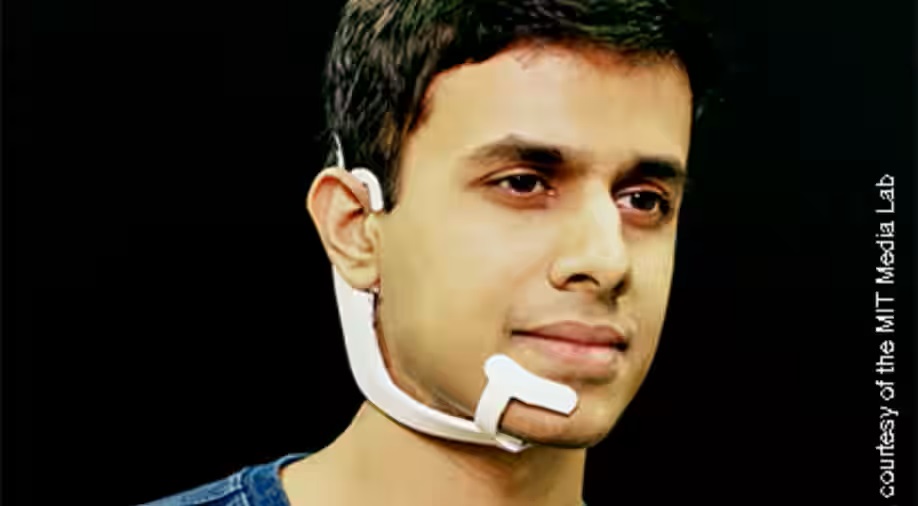The device, termed AlterEgo has been designed by Arnav Kapur, a resident of India’s national capital Delhi who is currently a student of Media Arts and Sciences at the MIT Media Lab.
A student of the famed Massachusetts Institute of Technology (MIT) has built an artificial intelligence (AI)-enabled device that lets individuals to interact in a natural language with machines, AI assistants, services, and other people without any voice. People don’t have to open their mouths and don’t have to make any outwardly observable gestures. They can merely converse articulating words inwardly.
The device, termed AlterEgo has been designed by Arnav Kapur, a resident of India’s national capital Delhi who is currently a student of Media Arts and Sciences at the MIT Media Lab.
As to the MIT Media Lab’s website, AlterEgo records peripheral brain signals when internal speech articulators are volitionally and neurologically triggered, during a user’s internal articulation of words.
“This enables a user to transmit and receive streams of information to and from a computing device or any other person without any observable action, in discretion, without unplugging the user from her environment, without invading the user’s privacy,” the website reads.
A viral video shows Kapur wearing the device, and answering questions in an interview. The interviewer asks Kapur questions and the MIT student responds without saying a single word. “You have the entire internet in your head,” the interviewer stated.
Here’s a glance at the video:
https://www.instagram.com/reel/CuzYteJu6Ou/?utm_source=ig_web_copy_link
A post shared by Business | Motivation | Technology (@wealth)
The website also indicates that the primary objective of AlterEgo is to help facilitate communication for those with speech difficulties including illnesses like ALS (amyotrophic lateral sclerosis) and MS (multiple sclerosis).
“Beyond that, the system has the potential to seamlessly integrate humans and computers—such that computing, the Internet, and AI would weave into our daily life as a “second self” and augment our cognition and abilities.”

